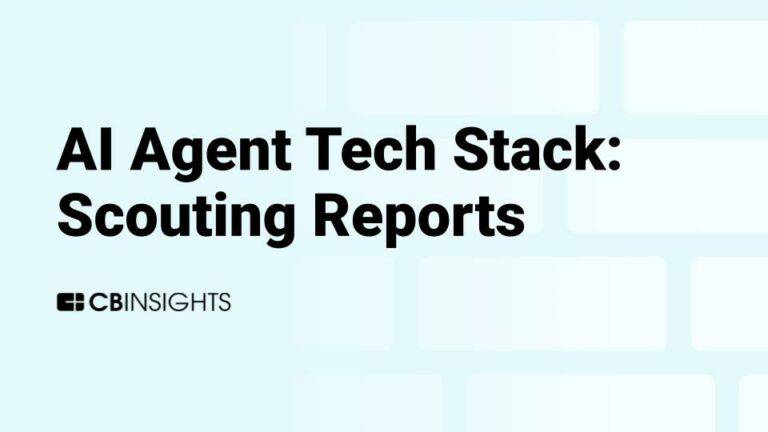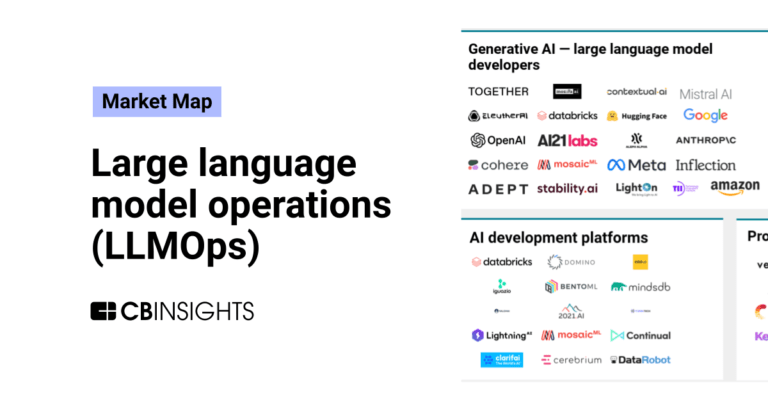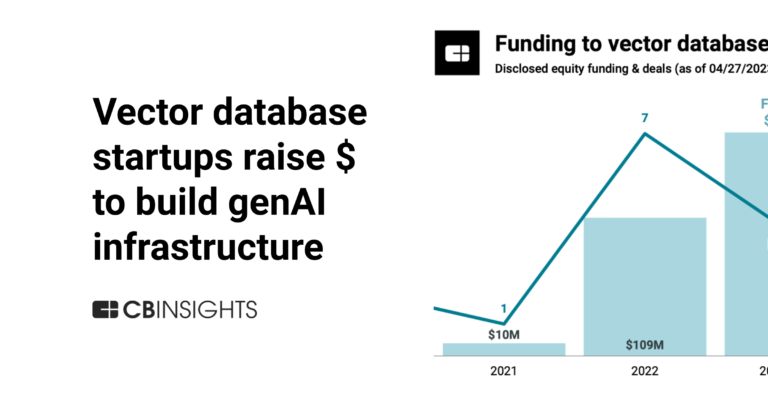
Pinecone
Founded Year
2019Stage
Series B | AliveTotal Raised
$138MValuation
$0000Last Raised
$100M | 3 yrs agoRevenue
$0000Mosaic Score The Mosaic Score is an algorithm that measures the overall financial health and market potential of private companies.
-64 points in the past 30 days
About Pinecone
Pinecone specializes in vector databases for artificial intelligence applications within the technology sector. The company offers a serverless vector database that enables low-latency search and management of vector embeddings for a variety of AI-driven applications. Pinecone's solutions cater to businesses that require scalable and efficient data retrieval capabilities for applications such as recommendation systems, anomaly detection, and semantic search. Pinecone was formerly known as HyperCube. It was founded in 2019 and is based in New York, New York.
Loading...
Pinecone's Product Videos


ESPs containing Pinecone
The ESP matrix leverages data and analyst insight to identify and rank leading companies in a given technology landscape.
The large language model (LLM) application development market provides frameworks, tools, and platforms for building, customizing, and deploying applications powered by pre-trained language models. Companies in this market offer solutions for fine-tuning models on domain-specific data, creating prompt engineering workflows, developing retrieval-augmented generation systems, and orchestrating LLM-p…
Pinecone named as Highflier among 15 other companies, including Databricks, Cohere, and LangChain.
Pinecone's Products & Differentiators
Vector Database
Fully managed, production-ready vector database powering fast, fresh, and filtered vector search. Pinecone enables its users to launch AI-powered applications into production faster all while providing the performance, quality, scale, and stability they need.
Loading...
Research containing Pinecone
Get data-driven expert analysis from the CB Insights Intelligence Unit.
CB Insights Intelligence Analysts have mentioned Pinecone in 3 CB Insights research briefs, most recently on Sep 5, 2025.

Sep 5, 2025 report
Book of Scouting Reports: The AI Agent Tech StackExpert Collections containing Pinecone
Expert Collections are analyst-curated lists that highlight the companies you need to know in the most important technology spaces.
Pinecone is included in 2 Expert Collections, including Artificial Intelligence (AI).
Artificial Intelligence (AI)
37,333 items
Companies developing artificial intelligence solutions, including cross-industry applications, industry-specific products, and AI infrastructure solutions.
Generative AI
2,951 items
Companies working on generative AI applications and infrastructure.
Latest Pinecone News
Nov 11, 2025
I tested both Weaviate and Pinecone in a straightforward way, based on real features, actual documentation, and practical use-cases. Both are strong products. Both have their advantages. But after using them in real situations, I realised that Weaviate fits my working style and project needs better , not because Pinecone is weak, but because the design approach of Weaviate matches the type of systems I build. This article explains that honestly, without pretending that Pinecone is inferior or pretending that Weaviate does things it cannot do. Why I Lean Toward Weaviate in My Work The first thing that influenced my preference is that Weaviate is open source. This is not the only reason, but it is one of the reasons. When a system is open source, I can inspect the code, understand the architecture, run it on my own machine, and experiment freely. For someone who likes having full control over infrastructure and cost, this naturally feels more comfortable. Pinecone is a managed service. That is not a bad thing. In fact, many companies prefer a managed service because it handles scaling, uptime, and maintenance automatically. But for me, a managed service increases dependence. It reduces flexibility in cost planning and experimentation. So the open-source nature of Weaviate simply fits the way I work better. Technical Behaviour That Matters in My Use-Case One thing I noticed very early is that Weaviate gives a complete database feeling. It stores objects along with vectors. It uses a schema-based approach where data properties have meaning. This helps me when I am building applications where both structured information and vector search are important. The data model becomes easy to maintain, and the queries become more expressive. Pinecone stores vectors with metadata. This works very well when the project is mainly about semantic search and does not need a deeper structural model. But my own projects involve combining vector similarity with property-based filtering. In that situation, Weaviate's schema system feels more natural and more organised. It keeps the data clean and makes the search behaviour consistent. I also found Weaviate's hybrid search helpful. Hybrid search in Weaviate lets me use vector similarity together with traditional keyword scoring. This is documented clearly by the developers, and the system is built to handle this combination smoothly. I use hybrid search often because many datasets contain text where exact matches and semantic meaning both matter. Pinecone supports metadata filtering well, but hybrid search is not integrated at the same level. For some of my tasks, that difference becomes noticeable. I also appreciate that Weaviate supports multiple vectorisation modules. Some modules run inside the system, and some work as external services. This flexibility saves time when building pipelines. Pinecone expects all embedding generation to happen outside, which is completely valid, but it means I end up managing more parts of the workflow myself. None of these points make Pinecone weak. Pinecone is very strong in simplicity, reliability, and ease of scaling. But for my type of development style, I prefer having more control over data modelling, hybrid search, and vectorisation behaviour. The Transparency Factor Affects My Comfort Level Because Weaviate is open source, I feel more confident in long-term usage. I can study how it stores data, how it manages vectors, and how indexes are organised. Even if I never touch the code, the transparency itself gives clarity. Pinecone works like a closed system. It hides the internal engine and simply provides the final performance. Many users like this because it removes complexity. But for me, understanding internal behaviour is important. I prefer knowing how the system functions under the hood. It helps me design better architectures and tune the system more intelligently. This is not about one being right or wrong. It is simply about which approach suits my thinking style. Pinecone is Strong, but the Match With My Workflow is Limited To be fully honest, Pinecone is excellent for people who want fast setup, simple API usage, and no infrastructure management. It solves that part very efficiently. But the way I build applications requires a bit more flexibility and a bit more depth in data organisation. Pinecone focuses mainly on high-performance vector search. Weaviate focuses on being a full vector database with structure, filters, and endpoints. Because my work deals with structured data, semantic data, and evolving schemas, I naturally gravitate toward the system that supports those needs more directly. Conclusion: Weaviate Fits My Needs More Naturally After testing both tools honestly, without bias, I can say clearly that Weaviate fits my requirements better . Not because Pinecone is weak, and not because I wanted only open source, but because Weaviate gives me: more control over data structure, more flexibility in how I run and scale it, more transparency in how the system works, and more convenience in combining vector search with filtering and keyword behaviour. Pinecone remains a strong and reliable platform. It simply follows a different design philosophy. For my style of development, that philosophy is not the best match. Weaviate aligns with my expectations, my way of thinking, and the type of AI systems I like to build. That is the honest reason why, for me personally, Weaviate wins
Pinecone Frequently Asked Questions (FAQ)
When was Pinecone founded?
Pinecone was founded in 2019.
Where is Pinecone's headquarters?
Pinecone's headquarters is located at 1375 Broadway, New York.
What is Pinecone's latest funding round?
Pinecone's latest funding round is Series B.
How much did Pinecone raise?
Pinecone raised a total of $138M.
Who are the investors of Pinecone?
Investors of Pinecone include Wing, Menlo Ventures, ICONIQ Growth, Andreessen Horowitz, Tiger Global Management and 11 more.
Who are Pinecone's competitors?
Competitors of Pinecone include LanceDB, DataStax, Neon, NOSIBLE, Objective and 7 more.
What products does Pinecone offer?
Pinecone's products include Vector Database.
Who are Pinecone's customers?
Customers of Pinecone include Mem AI, Expel, Perception Point, Nyckel and Gong.
Loading...
Compare Pinecone to Competitors

Weaviate is a company that develops artificial intelligence (AI)-native databases within the technology sector. The company provides a cloud-native, open-source vector database to support AI applications. Weaviate's offerings include vector similarity search, hybrid search, and tools for retrieval-augmented generation and feedback loops. Weaviate was formerly known as SeMi Technologies. It was founded in 2019 and is based in Amsterdam, Netherlands.
Milvus is an open-source vector database designed for GenAI applications within the technology sector. The database supports searches and can handle large volumes of vectors, suitable for machine learning and deep learning tasks. Milvus serves sectors that require data retrieval and management solutions, such as artificial intelligence and machine learning industries. It was founded in 2019 and is based in Redwood City, California.

Qdrant focuses on providing vector similarity search technology, operating in the artificial intelligence and database sectors. The company offers a vector database and vector search engine, which deploys as an API service to provide a search for the nearest high-dimensional vectors. Its technology allows embeddings or neural network encoders to be turned into applications for matching, searching, recommending, and more. Qdrant primarily serves the artificial intelligence applications industry. It was founded in 2021 and is based in Berlin, Germany.
Turbopuffer is a company that specializes in providing serverless vector database solutions in the technology sector. The company's main service is a vector database built on top of object storage, offering cost-effective, usage-based pricing and scalability. The primary sectors that Turbopuffer caters to include the technology and data storage industries.

ApertureData operates within the data management infrastructure domains. The company's offerings include a database for multimodal AI that integrates vector search and knowledge graph capabilities for AI application development and data management. ApertureData serves sectors that require AI applications, including generative AI, recommendation systems, and visual data analytics. It was founded in 2018 and is based in Los Gatos, California.
Vespa specializes in data processing and search solutions within the AI and big data sectors. The company offers an open-source search engine and vector database that enables querying, organizing, and inferring over large-scale structured, text, and vector data with low latency. Vespa primarily serves sectors that require scalable search solutions, personalized recommendation systems, and semi-structured data navigation, such as e-commerce and online services. It was founded in 2023 and is based in Trondheim, Norway.
Loading...


